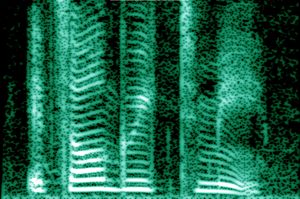Attention
Voices in the head
Is there a connection between inner speech and voice-hearing?
Posted November 15, 2010
Image via Wikipedia
In my last post, I asked whether some of the mysteries of thinking and inner speech can begin to be resolved when we consider how inner speech takes different forms. This time, I want to ask whether this view of inner speech can make sense of a puzzling and often very troubling experience: auditory verbal hallucinations.
My discussion of this topic with Jad Abumrad can be heard in the second part of my Radiolab interview, which went out as this podcast. Voice-hearing is usually associated with psychiatric disorders such as schizophrenia, although for many people it's an important part of normal experience as well.
My thinking about voice-hearing really began with my thinking about inner speech. If you consider inner speech to be an internalized version of the social dialogues that we engage in as children, then our heads should be full of other people's voices. When I started to look at the psychiatric literature, I saw that accounts of voice-hearing as a disorder of inner speech were quite well established. According to one prominent view1, people hear voices when they misattribute their own inner speech to somebody else. They 'hear' themselves thinking in words, but they don't realise that it's them doing the thinking—and so they experience it as a voice.
Although inner speech is now widely considered to be the raw material of auditory verbal hallucinations, questions about its social nature don't receive enough attention. I have argued that we can't really begin to understand this connection between inner speech and voice-hearing until we take a developmental view of inner speech. Specifically, the claim is that if you follow Vygotsky's ideas through to their logical conclusion, there should be different kinds of inner speech2. In my last post, I talked about some research that I and my colleagues have done on the postulated distinction between expanded and condensed inner speech. The theory goes that the experience of hearing a voice is connected to the transition between these two kinds of inner speech, particularly the point at which condensed inner speech is re-expanded into a full-blown inner dialogue.
These ideas need to be tested out in further research on voice-hearing and inner speech. In particular, they emphasize the important of paying close attention to the phenomenology of these two experiences: the 'what is it like?' questions. Personally, I'm convinced that we won't understand either of these experiences unless we pay careful attention to these questions, and part of that is going to involve retaining a developmental perspective on the voices in our heads.
In the podcast, Pat Walters talks to a psychotherapist from the Hearing Voices Network, and to one of her voice-hearing clients. You can find out more about the work of the Network here. And this link will take you to the international organization Intervoice.
Anyway, enjoy the podcast, and as ever I'd love to hear your comments.
1 Johns, J. C., & McGuire, P. K. (1999). Verbal self-monitoring and auditory hallucinations in schizophrenia. The Lancet, 353 (9151), 469-470.
2 Fernyhough, C. (2004). Alien voices and inner dialogue: Towards a developmental account of auditory verbal hallucinations. New Ideas in Psychology, 22, 49-68.



